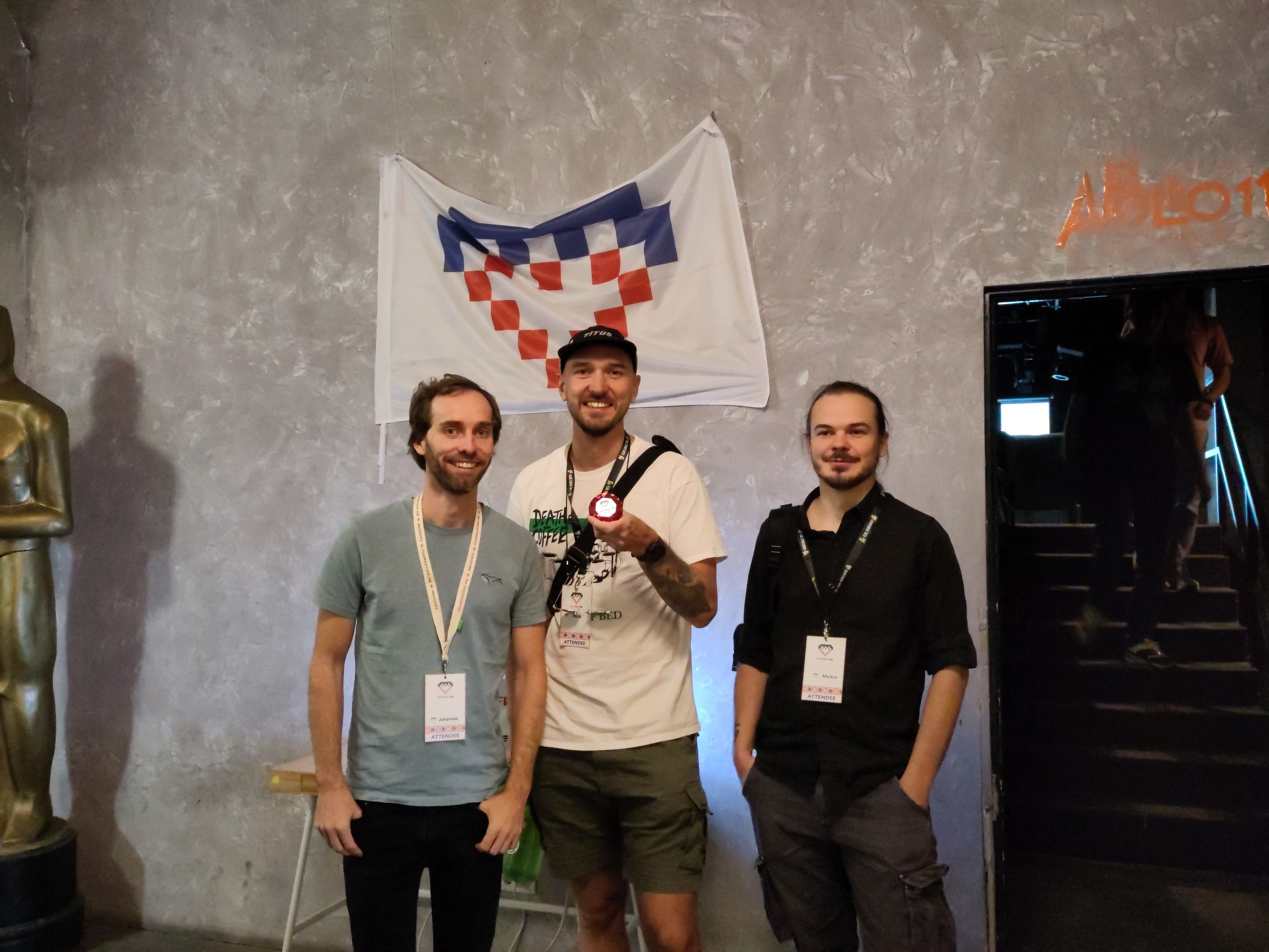friendly.rb 2023

Recap
friendly.rb 2023
This year's friendly.rb took our three Ruby developers Marcus, Philipp, and Johannes to Bucharest, the vibrant capital of Romania. The small "cozy conference" provided the community with a pleasant place full of input and exchange for two days in the heart of the otherwise bustling city. We have summarized more about impressions, talks, and outlooks in our recap for you.
Relaxed input without conference hustle and bustle.
The small theater Apollo 111 provided a relaxed atmosphere for around 100 like-minded people from all over Europe to listen to exciting talks together and to have relaxed conversations during the breaks. The good organization and friendly support did their part to make our developers feel at home and listen eagerly to the first talk of the day after the opening on Wednesday.
New Dos and Don'ts from the Ruby universe
)
Xavier Noria spoke as the creator of Zeitwerk. With this program library, the dynamic loading of code in applications can be managed. In this way, it is possible to structure it sensibly and keep an overview in the development process. Zeitwerk also loads program parts only when they are needed, ensuring that applications can start faster. In tandem with other frameworks, Zeitwerk is even able to detect changes in files and take them into account when loading. In summary, Noria was able to impressively demonstrate how his library supports and simplifies programming with Ruby.
In the late morning, our developers listened to Naijeria Toweett's report on her experiences with the JavaScript framework React in frontend development. Using an example, she showed that React is not always the go-to solution for developing complex data-driven applications. She argued for taking more time to reflect on one's own project and the necessary tools instead of automatically opting for the most well-known solution.
The last talk of the evening was held by Nick Sutterer on Trailblazer, the most commonly used business logic framework in Ruby applications at webit!. He demonstrated how over time, dissatisfaction with individual issues in Trailblazer led to the development of additional libraries. Now, there is a situation where multiple very similar solutions are available, and one must choose between them. This happened because there was no collaboration for the common improvement of Trailblazer. At the end of the talk, Nick emphasized how Trailblazer still stands out due to its easier error handling compared to competing solutions like Dry Monads.
After so much good input, it was time for some movement, so our developers joined an exciting guided tour about the history of Romania and Bucharest. After this welcome change, the evening ended in a stylish bar overlooking the city.
How AI and development influence each other
)
Thursday began with Jason Swett's talk on the increasingly important topic of artificial intelligence. Bots such as ChatGPT are used in development to quickly generate short lines of code. This already works very well, especially with very specific programming languages such as Ruby. For more complex problems, however, AI responses become increasingly prone to errors. Developers then spend more time finding the error in a response than writing the code correctly themselves. Swett presented a method of asking ChatGPT several simple questions and combining the results piece by piece. In addition, he suggested letting the AI ask questions about the requirements itself. This would allow it to improve its own responses and produce the desired result more quickly. This is how to get the most out of ChatGPT, according to the speaker. At the end, Swett gave an outlook on the future of AI use from a developer's perspective. In his opinion, it will not replace humans. However, the focus will shift to feeding it clear problems instead of writing the entire code yourself.
After Naijeria had already tweeted the day before about how not to use React in the frontend, Ayush Newatia's talk followed on alternatives to this framework in a specific application area. Since React requires a backend framework like Ruby on Rails for data storage in any case, one could just as well turn to solutions like Hotwire, Strada, or Stimulus. Due to their smaller size, lower complexity, and flatter learning curve, these provide more obvious alternatives. In addition, the more focused solution approaches allow for more targeted use in specific problem areas. At the end of his talk, Newatia discussed how Rails in combination with Strada and Hotwire can be used as a hybrid-native solution for mobile devices. For example, this can reduce the dependency on the desktop version in the display of a website on a smartphone.
After the conference is before the conference.

After the closing, the community tried different types of beers from around the world in a bar and used the cozy gathering as an opportunity to exchange thoughts on the many interesting topics and experiences from the Ruby universe.
Marcus, Philipp, and Johannes have definitely brought some exciting impulses and impressions from Bucharest to their team at friendly.rb 2023. Thanks to them, the anticipation for next year's event is already growing - especially the decision on who will be joining in 2024.
Share this post